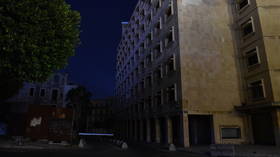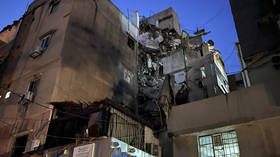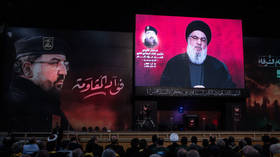Lebanon completely loses power – energy company

Lebanon’s last operational power plant has run out of fuel, plunging the country into a total blackout. EDL, the Lebanese state energy company, said that the power cut will affect airports, water supplies, and prisons.
The oil-fired Zahrani power plant exhausted its fuel supplies and shut down on Saturday afternoon, “resulting in a total power outage across all Lebanese territories,” Electricite du Liban (EDL) said in a statement.
The outage will affect “essential facilities such as the airport, port, water pumps, sewage systems, and prisons,” the company continued, adding that power will gradually be restored “once fuel oil is secured.”
Power shortages have plagued Lebanon for decades, with the country’s post-2019 economic crisis worsening the situation. EDL typically provides less than five hours of electricity per day, with Lebanese homes and businesses relying on diesel or petrol generators to make up the shortfall.
Lebanon has few natural resources, and imports all of the oil used in facilities like the Zahrani plant. In 2021, Iraq offered Beirut a million tonnes of heavy fuel oil per year in exchange for services, including health care, for Iraqi citizens. However, the Iraqi oil is too heavy for use in Lebanese power plants, forcing Lebanon to trade it for lighter gas oil on international markets at disadvantageous rates.
The Zahrani plant was Lebanon’s sole operational power facility since another oil-fired plant in Deir Ammar shut down last month. While the country has five hydroelectric plants, all are beyond their service life and are either shut down or producing a fraction of their previous output.
The blackout came hours after an Israeli airstrike killed ten people in Wadi Al-Kfour in southern Lebanon. Hezbollah militants responded to the strike by firing more than 50 rockets into northern Israel, the Lebanese paramilitary group said in a statement. Israel and Hezbollah have traded fire ever since Israel’s military campaign in Gaza began ten months ago, although tensions recently reached boiling point after Israel assassinated the group’s top military commander in Beirut last month.
Israeli Foreign Minister Israel Katz warned last month that “an all-out war” with Hezbollah was increasingly likely, while Hezbollah leader Hassan Nasrallah cautioned Israel to expect “open battle on all fronts.”
Should Israel go to war with Hezbollah, it would likely target Lebanon’s power grid. During Israel’s 2006 invasion of southern Lebanon, an Israeli strike on oil storage tanks at the Jiyeh power station took the plant offline and caused up to 30,000 tons of oil to leak into the Mediterranean, polluting the sea as far away as Cyprus, Türkiye, and Greece.














